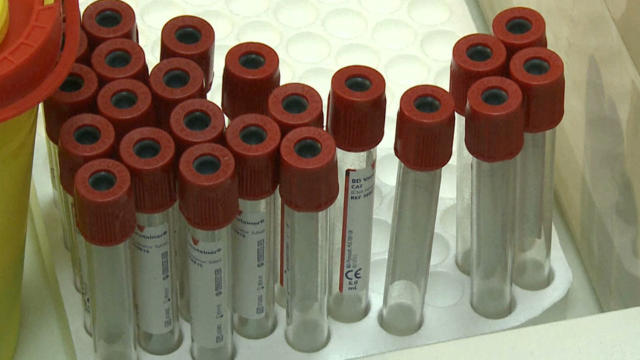It could be a major breakthrough in the fight against HIV.
It’s coming from a research team at the University of Hong Kong.
CGTN’s Frances Kuo has more on the promise the discovery is bringing.
An experiment using mice is offering hope for patients with HIV.
“The mice have all the human immune cells in their body, so that they can support the real AIDS virus infection in the body,” said Chen Zhiwei, Director of the AIDS Institute at the University of Hong Kong.
What scientists from the University of Hong Kong say they’ve discovered is what’s being called a “functional cure” for the HIV virus.
It’s an antibody that acts against all forms of HIV.
It’s a major advance as right now, no vaccine exists to treat its many varieties.
“We hope the antibody can help not only control the viruses in the body, but help eliminate already infected cells,” said Chen.
Though the antibody doesn’t completely eliminate the virus from the body, it keeps levels low enough to be virtually undetectable.
What’s more, doses could be taken less often than current medications, which can require daily doses.
“We can do every three months one injection for clinical use,” said Chen. “So this way we can basically benefit patients, in a way we reduce the cost, at the same time you actually can make the drug functioning longer in the body.”
This discovery comes at a crucial time.
According to U.N.-supported AIDS Data Hub, 850,000 people in China are infected with HIV.
“China is facing a major epidemic issue,” said Chen. “There are a lot of new infections particularly among high-risk groups including homosexuals. If we can make a long-lasting drug for prevention, if we just give the antibody injection like every three months, among this high-risk group, we can expect to see a major preventive effect.”
But more testing and clinical trials lie ahead, which means another three to five years before it’s available to consumers.
“We’ve also got to remember that even today, there are treatments to prevent HIV that aren’t being used by governments across the world,” said Andrew Chidgey, Chief Executive of AIDS Concern. “So just because a treatment becomes available, doesn’t mean that people will get it, or that it will have an impact.”
But, the new finding is encouraging, not just for HIV patients in China, but for the more than 36 million people living with the disease around the world.
Dr. Anupam Jena of Harvard Medical School discusses a new antibody to fight HIV
CGTN’s Elaine Reyes talks with Dr. Anupam Jena of Harvard Medical School about a new antibody to fight HIV.
 CGTN America
CGTN America

